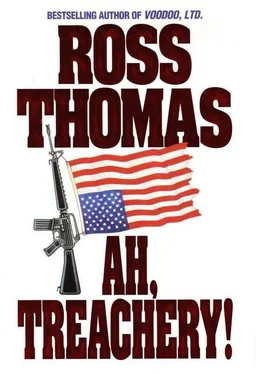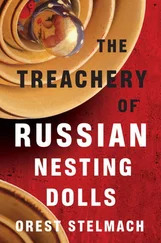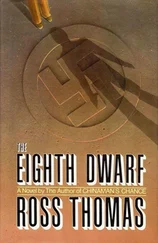“Who exploded first?” Winfield said.
“The Colonel. He blames it all on the Major, accuses him of stealing the money and calls him names that’d make motherfucker sound like an endearment. The Major just sits there and listens till the Colonel runs down. Then he denies it. No yells. No shouts. Just that one cold flat denial. The Colonel starts in on him again. The Major takes it for about two minutes, maybe more, then hits the Colonel three times and damn near kills him.”
Viar drank a little more of his whisky, almost a reflective sip, and said, “I was sitting right there and if I’d blinked I’d’ve missed it. He was that fucking fast.”
“What happened to him — the Major?”
“What d’you think happened? They arrested him and tossed him into the guardhouse, or what passed for one. It was more like a real small motel with barred windows and metal doors. The charge was striking a superior officer. That’s when I did a little snooping and, after that, went to see him. The Major.”
“Why?” Winfield said. “Surely not to offer comfort and consolation.”
Viar stared into his half-empty glass. “Ever notice Mickey Mouse has only three fingers?”
“I was five when I first noticed it. Maybe six.”
Viar looked up at Winfield. “Well, the Mickey Mouse seal on the mailbag the four of us tucked into the Colonel’s safe had three fingers on each hand. But the Mickey Mouse on the seal of the bag the little Captain delivered to his Colonel had four fingers. On each hand.”
“How do you know?”
“My pal in the Salvadoran DNI somehow got hold of the mailbag and the broken seal. I noticed the four fingers. He didn’t, of course, and I saw no reason to mention it.”
“But you said the American Major checked the seal when he took delivery.”
“He checked to see if it was broken. He didn’t count fingers. Who would?”
“You would.”
“Yeah, but that’s my trade. Or was.”
“Then it was a purposely clumsy forgery, which, if necessary, could be blamed on the Major?”
“Uh-huh,” Viar said. “Well, I checked with the home office first and let them mull it over. After they got back to me was when I went to see the Major and tell him he’d been shortchanged by his fellow Americans, the Colonel and the Captain.”
“You were acting under orders at the time?”
“My orders were to smooth things over.”
“I see.”
“I tell the Major he was deliberately provoked into striking his superior officer. I also tell him that’s exactly what the Colonel and the Captain were counting on. Then I ask him if he’d noticed the four-fingered mouse seal before he handed the mailbag over to the little Salvadoran Captain.”
“And his reply?”
“He closed his eyes for maybe fifteen or twenty seconds, then opened them. That was his reply. So then I tell him the best deal he can cut is to resign his commission and forget about the Army. The last thing I tell him is that Langley’s sending the Atlacatl battalion another one-point-two million to replace what’s been stolen and that the whole thing’ll be forgotten — even the fact that he beat the shit out of his superior officer.”
“His comment — if any?” Winfield said.
“Not one fucking word.”
“Then what?”
“They let him resign his commission.”
“Was that the end of it?”
“Almost — except for the little Salvadoran Captain, who sneaks by to tell me he’s thinking of deserting because his superiors are convinced he got a cut of the stolen money but didn’t share it with anybody. What he wants from me are the names of the American Colonel and Captain.”
“Did you give him the names?”
“What d’you think?”
“You gave him the names,” the General said.
Viar smiled. “But I also suggested he might go pay a courtesy call on the by then ex-Major.”
“Who was where?”
“After he resigned his commission, they let him out of the guardhouse-motel and checked him into some fleabag in San Salvador to wait for his flight back to the States. And that’s where the ex-American Major and the almost ex-Salvadoran Captain met and talked. And right after that the Major calls me.”
“Why?”
“To let me know I have a loose end flapping around in the form of the little Captain who’s hell-bent on revenge. The now ex-Major suggests I whisk the little Captain out of the country before he kills somebody.”
“Did you?”
“Sure. It was no big deal. I had the Captain and his wife flown to Mexico City, where a couple of our guys met ’em, gave ’em a few bucks and waved good-bye. After I make sure they’re really gone, I go see the American Colonel and Captain and tell ’em what I’ve done.”
“Their reaction?”
“Well, they couldn’t exactly tell me they were grateful, could they? So they just said it was a wise decision.”
“This American Colonel and Captain,” Winfield said, then paused, as if to think about what should come next. “It only took them three years.”
“For what?”
“For Walker Laney Hudson to go from bird colonel to major general, and for Ralph Waldo Millwed to go from captain to colonel. Neither served in the Gulf, which makes their rapid promotions rather curious.”
“Well, you’d know more about that than I would.”
“I doubt that,” Winfield said. “Still, I do know that in times past certain general officers have promoted those who could either harm or embarrass them. Some think of it as closing ranks. Others regard it as blackmail. As for Hudson and Millwed, I have a theory about their sudden promotions. Care to hear it?”
“As long as it’s a theory and not a lecture,” Viar said.
The General nodded and smiled a promise. “Let’s assume that there’s this turbulent priest we wish to be rid of—”
“Who’s we?” Viar asked.
“Who knows?”
“I see.”
“At any rate, this priest is rector of the University of Central America, which has the reputation of being sympathetic to the cause of the Salvadoran rebels, who, as you know, call themselves the Farabundo Marti National Liberation Front or the FMLN.”
“It’s a lecture after all,” Viar said.
“Bear with me,” the General said. “On November sixteenth, nineteen-eighty-nine, our turbulent priest, Ignacio Ellacuria, is shot dead along with five other priests, their cook and her daughter. Sounds rather like the title of a French film, doesn’t it? ‘Six Priests, Their Cook and Her Daughter.’ ”
“I don’t go to French films because, like your lectures, I don’t think they’ll ever end.”
“Patience,” the General said. “I have only a few more points to make and a question or two. From several sources I’ve learned that a CIA officer was at the scene of the priestly murders by 0800 the next morning. I need to know if that CIA officer was you.”
“He was a Latino,” Viar said. “Do I look like a Latino?”
The General studied him briefly, as if trying to decide, then said, “Back to the sudden promotions of General Hudson and Colonel Millwed. It’s fairly common knowledge these days that commandos from the Atlacatl battalion murdered the priests and the two women. But it was only a week or ten days before these murders that you,acting for the CIA, entrusted Hudson, then a colonel, and Millwed, then a captain, with two million four hundred thousand dollars, which they were to turn over to this same battalion. My question is: Was that the price the battalion had put on the head of our turbulent priest?”
“How should I know? I was just the bagman.”
“Yet when half the money was stolen, the blame for its theft fell on a luckless U.S. Army major. And almost immediately, more CIA money was dispatched to the battalion. The murders of the priests and the unfortunate women then took place, apparently on schedule. Meanwhile, some person or persons are one million two hundred thousand dollars richer.” The General looked slowly around the living room. “It would seem, Hank, that you’re not one of those persons.”
Читать дальше












